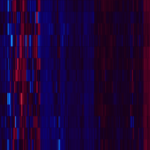Link to Pubmed [PMID] – 29587819
Parasit Vectors 2018 03;11(1):207
BACKGROUND: Host-associated microbes, collectively known as the microbiota, play an important role in the biology of multicellular organisms. In mosquito vectors of human pathogens, the gut bacterial microbiota influences vectorial capacity and has become the subject of intense study. In laboratory studies of vector biology, genetic effects are often inferred from differences between geographically and genetically diverse colonies of mosquitoes that are reared in the same insectary. It is unclear, however, to what extent genetic effects can be confounded by uncontrolled differences in the microbiota composition among mosquito colonies. To address this question, we used 16S metagenomics to compare the midgut bacterial microbiome of six laboratory colonies of Aedes aegypti recently derived from wild populations representing the geographical range and genetic diversity of the species.
RESULTS: We found that the diversity, abundance, and community structure of the midgut bacterial microbiome was remarkably similar among the six different colonies of Ae. aegypti, regardless of their geographical origin. We also confirmed the relatively low complexity of bacterial communities inhabiting the mosquito midgut.
CONCLUSIONS: Our finding that geographically diverse colonies of Ae. aegypti reared in the same insectary harbor a similar gut bacterial microbiome supports the conclusion that the gut microbiota of adult mosquitoes is environmentally determined regardless of the host genotype. Thus, uncontrolled differences in microbiota composition are unlikely to represent a significant confounding factor in genetic studies of vector biology.







